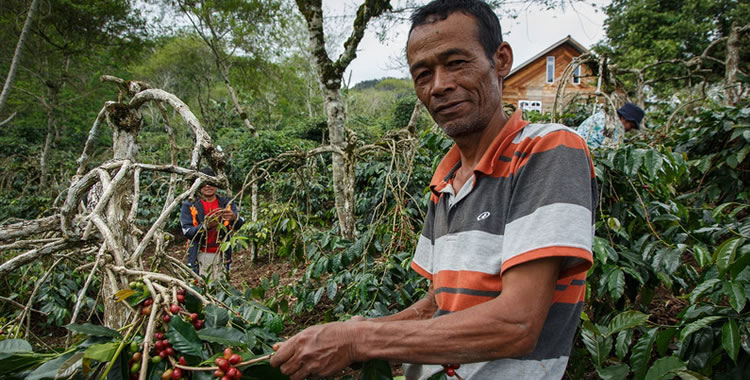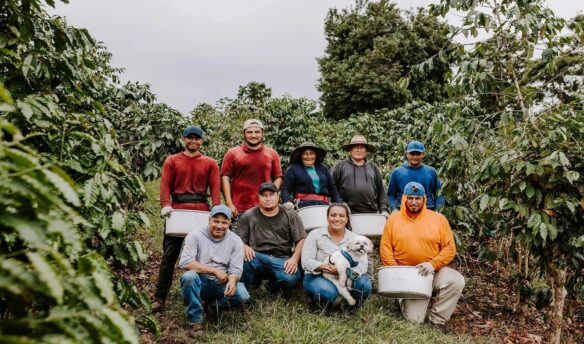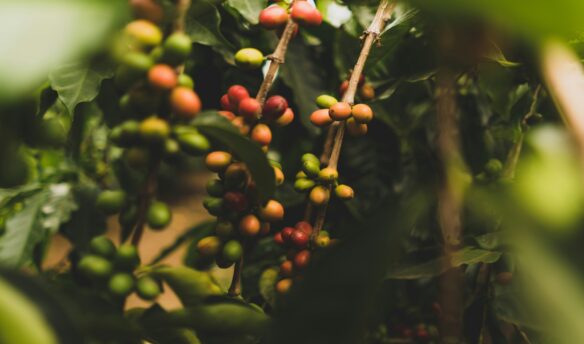(Photo: courtesy of Fairtrade America.)
[A]pproximately 80 percent of the world’s coffee is produced by 17.7 million small-scale coffee farmers, and, according to a pilot study by Fairtrade International and True Price, many coffee farmers continue to struggle to make ends meet despite sustainability pledges in the coffee sector.
This report sheds light on how much coffee farmers earn, as well as Fairtrade’s potential impact on household income. According to the report, most coffee farmers do not earn a living income—defined as sufficient income generated by a rural household to afford a decent standard of living for all the household members—from their coffee. On average, about 50 percent of household income comes from coffee production, but that varied greatly between countries.
Of the seven countries included in this study (Rwanda, Tanzania, Uganda, Kenya, India, Indonesia, and Vietnam), only farmers in Indonesia were earning a living household income. Farmers in Indonesia rely heavily on income from coffee production, but Kenyan farmers depend mainly on other sources of income. Farmers in India and Indonesia were the only ones able to pay their hired workers a living wage using their coffee income.
The coffee sector at large is aware of poverty in coffee growing countries, as well as the general solution: that coffee farmers need to be paid more for their coffee, and consumers need to be making up the difference. Data collected from Indian and Indonesian coffee farmers shows that when production volume matches with a higher coffee price, farm owners and hired workers can make a living wage.
Fairtrade’s overall goal is to see small-scale farmers earn a living income that provides them and their families with a sustainable livelihood. Fairtrade already has a minimum price program, but in the light of this study, the organization intends to do more market development, support diversification into other crops, and help improve yields and farm efficiencies.
—Rachel Sandstrom Morrison is Fresh Cup’s associate editor.















